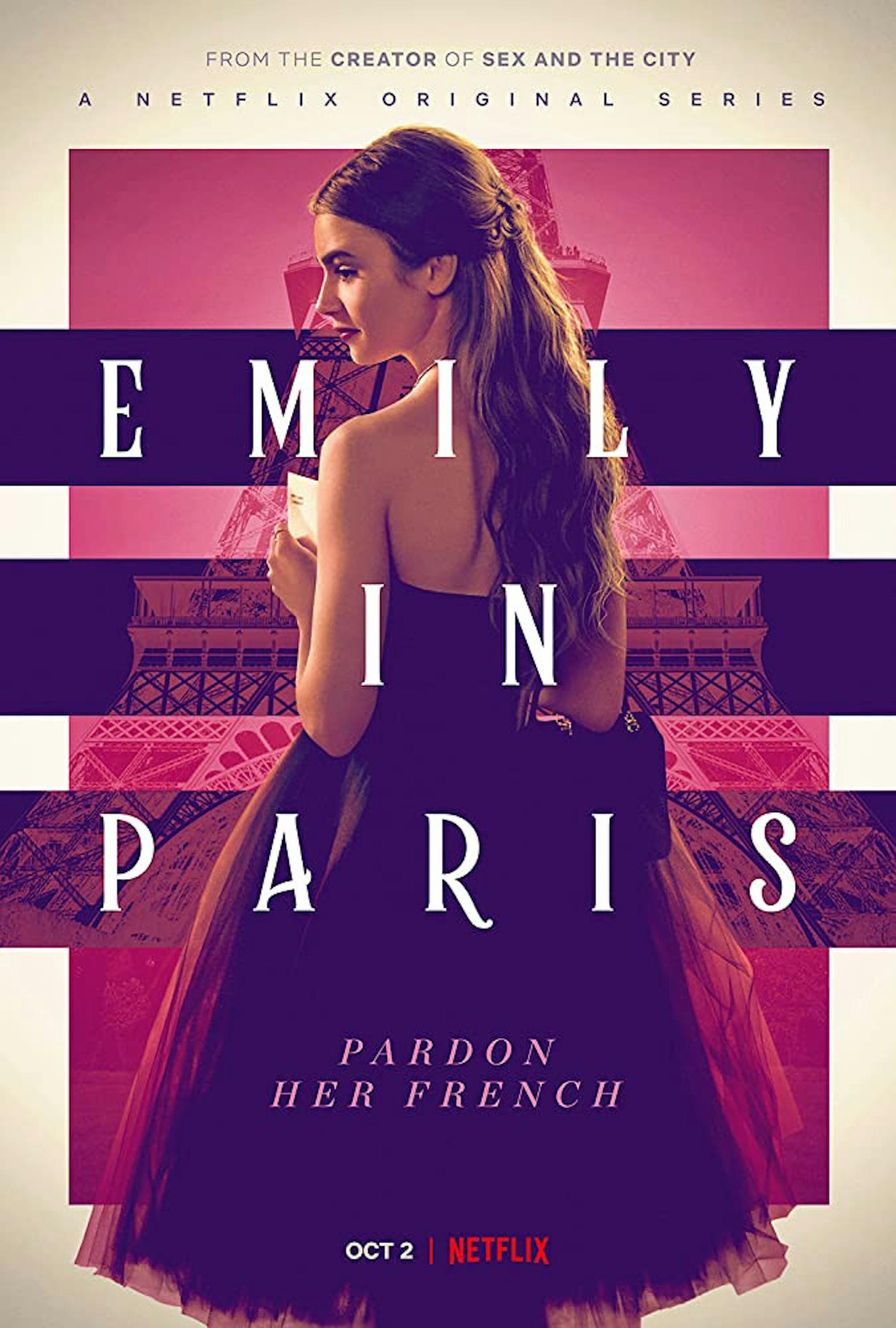Looking for something to help you procrastinate that fifth asynchronous lecture your professor just uploaded? Or do you need something playing in the background as you swipe through your daily dose of TikTok? Meet “Emily in Paris” (2020): Netflix's new show about Emily Cooper (Lily Collins), a promising marketing savant from Chicago who moves to the heart of France without knowing a word of French.
The thing I loved most about “Emily in Paris” was the beautifully crafted aesthetic. From brightly colored bucket hats to billowing ball gowns,every single one of Emily’soutfits leaves a lasting impact. “Emily in Paris” is ultimately a plane ticket out of our current lives and back to a world where you could sit knee to knee at a tiny table with your best friend and gossip over a morning espresso.
Despite being the titular character, Emily experiences little — if any — development during the series. Though quirky and headstrong, Emily’s character was not strong enough to overcome anything of substance or deliver a compelling story. In the first episode, Emily has a brief brush with loneliness. But after a short stint of sulking, she quickly meets Mindy Chen (Ashley Park), her new best friend who teaches her all of the survival tips necessary for being a foreigner in France. Because her character doesn’t really conquer anything besides the five flights of stairs up to her apartment, it's hard to say that Emily really grew or changed at all.
While romances often are one way a show can successfully keep viewers hitting that “next episode” button without a second thought, “Emily in Paris” does not do justice to the reputation of the City of Love. Anyone could easily guess that the hot downstairs neighbor, Gabriel (Lucas Bravo), would be Emily’s love interest. Predictability aside, Gabriel’s character lacks depth, both as a character and in his relationship with Emily. Over the course of the 10 episodes, all we learn about Gabriel is that he is hot and he can cook.Just because Bravo and Collins are both conventionally attractive does not mean that their characters are compatible or deserving of the label “relationship goals.”
"Emily in Paris" also makes a cheap attempt at trying to make a meaningful statement about some aspect of the world. In recent years, it has become the norm for television shows to educate and entertain us. For example, NBC’s "Superstore" (2015-) highlighted the dangerous lack of healthcare benefits for customer service workers, while also having a storyline that focused on the challenges of being undocumented in the United States. While not all current shows have these messages, it is the direction in which television writing is moving.
"Emily in Paris" tries to hop on the coattails of this progress by portraying Emily as an active feminist making waves of change in the fashion industry. In one scene, she fights against a perfumer for marketing his newest scent by having a model walk naked down a street of men in a commercial. While this is a valid argument, it was ironic that the producers were trying to comment on these issues while producing a show with its own underlying sexism.
One of Emily's superiors at the Paris office, a woman named Sylvie (Philippine Leroy-Beaulieu), was continuously cruel to Emily because the man with whom she was having an affair showed interest in the young American. It was upsetting to see a woman in such a powerful position have to base all of her decisions around what she thought would please her lover. Sylvie could have recognized Emily’s potential and actually guided her through the challenges of transitioning to a new lifestyle, but instead she was painted as villainous. Women who lead can be powerful and strong without being callous and uncaring.
Another eyebrow-raising moment was some of the jokes made at the expense of a character’s overweight female publicist. Considering theaverage jean size in the United States for women is 16–18,I don’t think its very feminist for a show filled with asupermodel-thin cast (which isn’t representative of the actual population) to make jokes at the expense of a woman’s body type.
Overall, I think we should appreciate "Emily in Paris" for what it is: a fluff piece of escapism in the middle of a content drought. At the same time, we should question why shows with such flimsy and half-baked writing get produced over those that could leave viewers with important messages about how we can change our world for the better.






